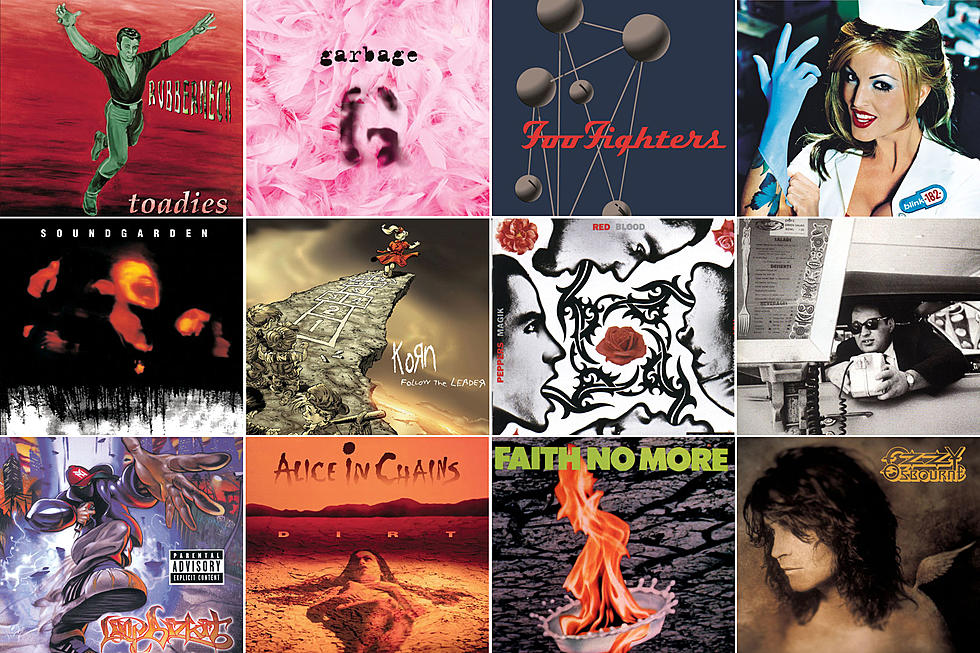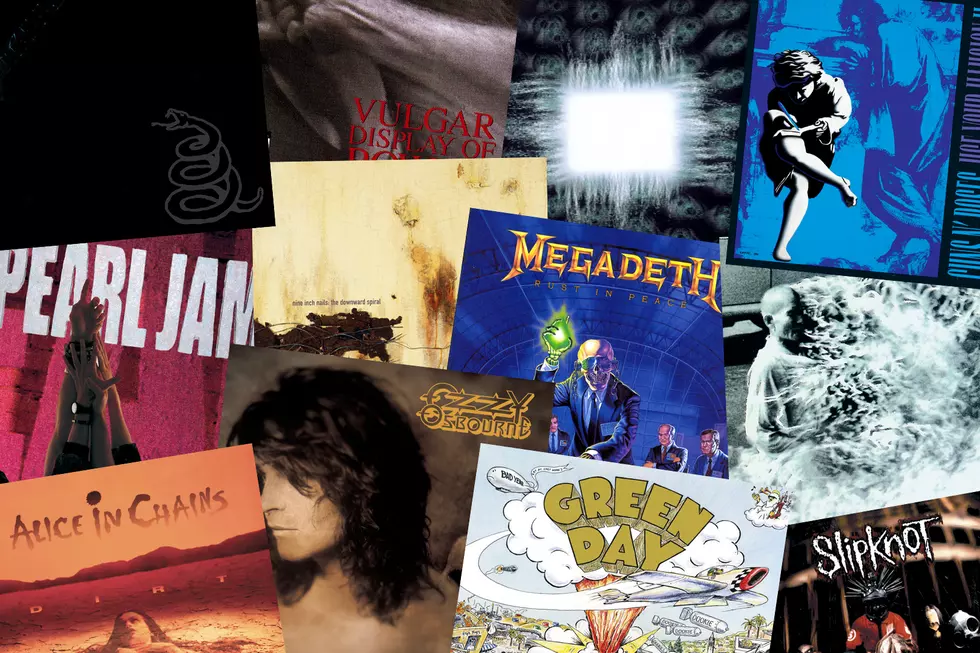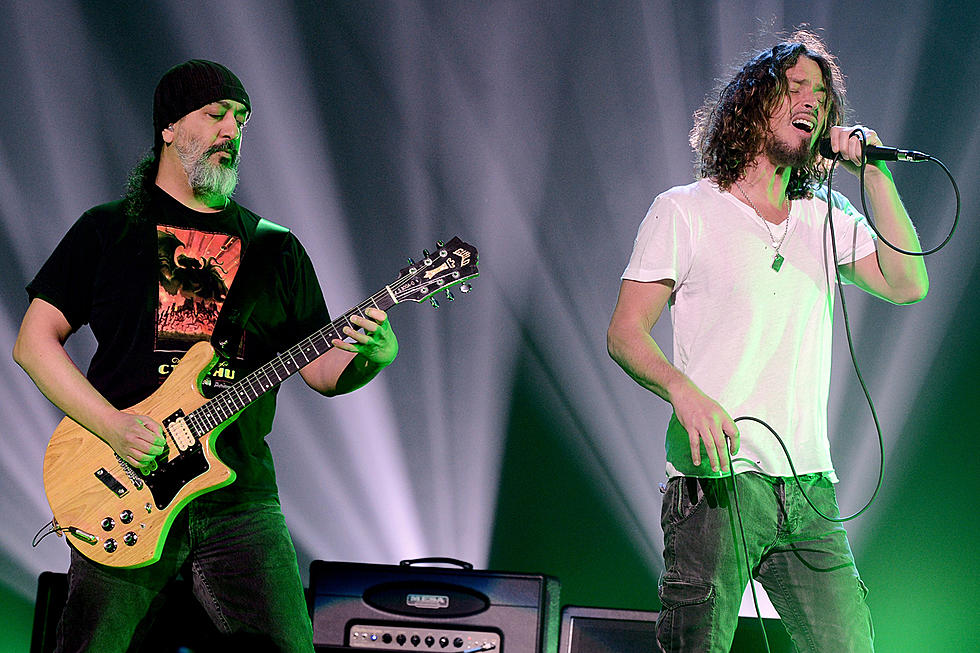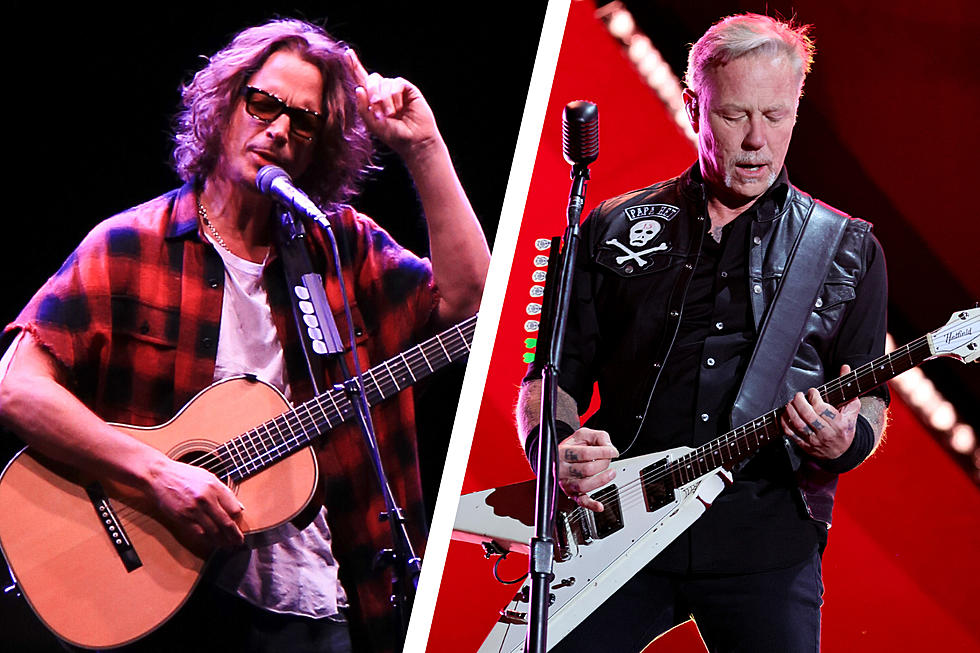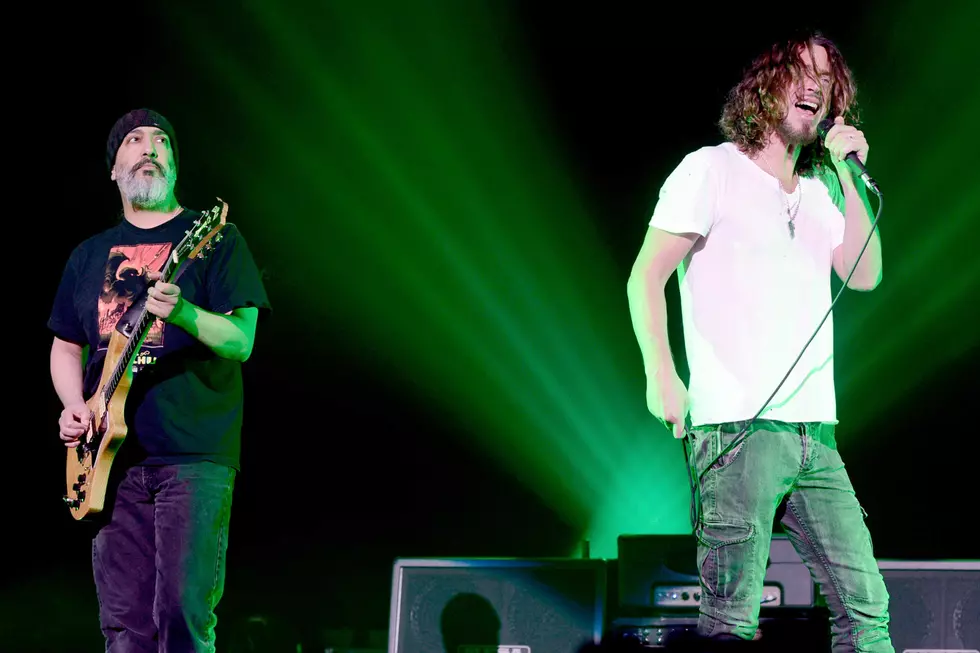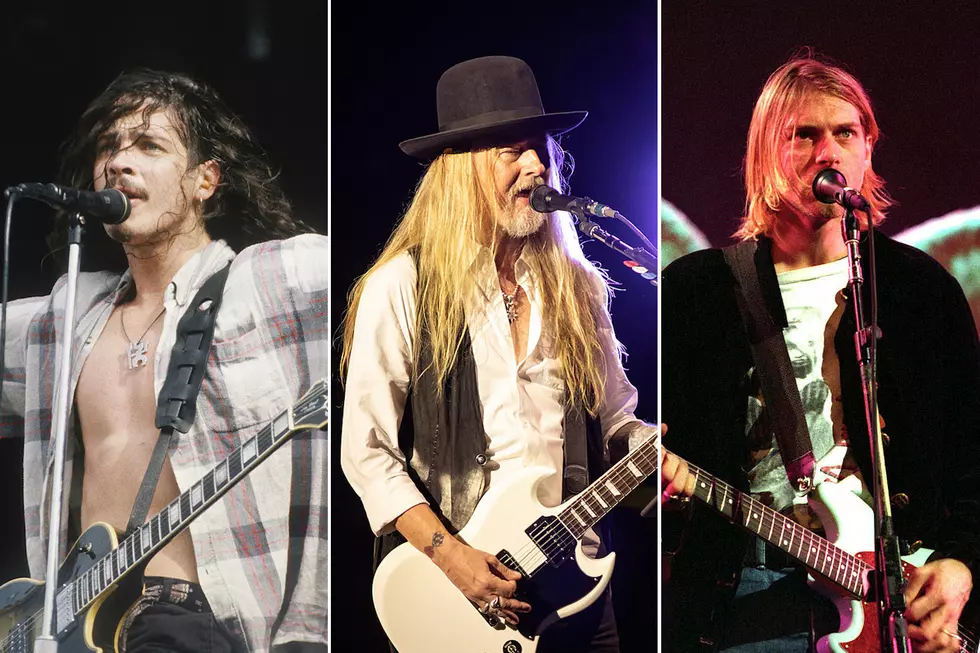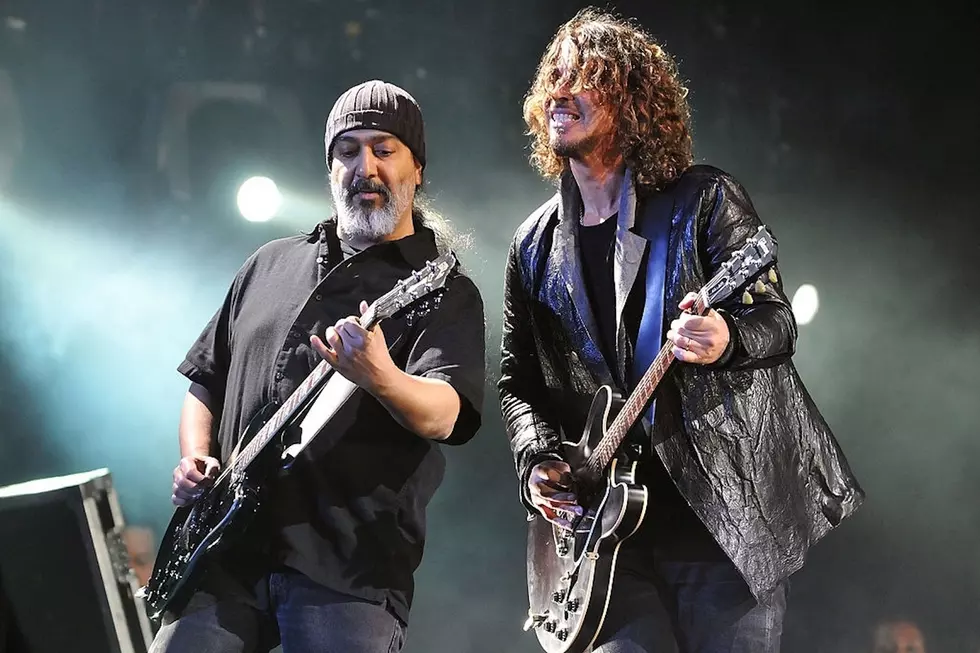
Remembering Soundgarden’s Final Concert
As Chris Cornell tore through a typically supercharged set with Soundgarden on the night of May 17, 2017, at Detroit's Fox Theatre, there was nothing to indicate he'd be dead just a few hours later.
Even guitarist Kim Thayil subsequently told Billboard, "I thought the show was good. I remember Chris had just gotten [into town] and was a little tired and his voice was a little rough, but by about the fourth or fifth song, it kicked in and then it was just, like, super amazing – beautiful, clear and strong and, I thought, particularly emotive."
Cornell was discovered unconscious at 12:15AM in the bathroom of his hotel room at the nearby MGM Grand with an elastic exercise band wrapped around his neck. He was pronounced dead at 1:30AM, and Detroit police ruled it a suicide — which the Wayne County Medical Examiner confirmed a little more than two weeks later. His family, however, rejected the finding, claiming instead that Ativan, an antianxiety medication he used in his acknowledged battle against depression, played a role in his death.
Five years later the discussion of whys and wherefores has faded. The crucial thing is that Cornell, who was 52, is no longer with us, though the music he left behind has been celebrated via reissues of Soundgarden and Temple of the Dog albums and the career-spanning 2018 compilation Chris Cornell, which was curated by Cornell's widow, Vicky, Soundgarden A&R rep Jeff Fura and Thayil, who wrote an essay for the package.
There was, not surprisingly, some sentiment in the immediate wake of the tragedy that the final show was filled with hints that all was not right with Cornell. But that was simply not the case. The two-hour, 19-song show offered a wide-ranging romp through Soundgarden's six-album catalog, with plenty of expected favorites such as "Spoonman," "Burden in My Hand," "My Wave," "Fell on Black Days" and "Black Hole Sun." The group also dug into deep cuts such as "Hunted Down" from its first Sub Pop EP, 1987's Screaming Life, along with Superunknown tracks such as "Kickstand" and "Mailman." Interestingly, there was nothing from 1988's Ultramega OK, Soundgarden's full-length debut, which the group had reissued in an expanded, remastered edition just two months earlier.
Watch Soundgarden Perform 'Black Hole Sun' at the Last Concert in 2017
Cornell was energetic and ebullient through the show, in a strong voice and hitting all the expected screams as well as fist-bumping with fans in the pit in front of the stage. He also went out of his way to flatter the city, tweeting, "Finally back in Detroit Rock City" with a picture of the Fox Theatre earlier in the day and telling fans at the show, "It's great to be back here, honestly."
"I have bragged about Detroit crowds for 30 years," he added. "There's no other crowd that never, ever disappoints" He saved more praise for the encore, declaring, "Detroit, you guys show up! I feel sorry for the next place we play, but we don't have the same expectations."
There was a point mid-show where Cornell was absent from the stage for a protracted period, but Thayil said it was simply because the guitar Cornell was playing next had fallen out of tune and a backup wasn't immediately ready. "He had to leave the stage, I remember," said Thayil, "and he just kind of poked his head around and said, 'Go ahead, start without me,' at which point [bassist] Ben [Shepherd] started jamming on something and we all fell in until Chris was ready." More telling about Cornell's state of mind to many came when he slipped a bit of Led Zeppelin's "In My Time of Dying" into the closing "Slaves & Bulldozers." But Thayil noted "that wasn't the first time he did that. He liked the song – he liked Led Zeppelin. ... And he often added bits or snippets of other songs like that into the shows, especially at the end. So, maybe ... but I don't think so."
Thayil largely agreed that hindsight was inevitable but not exactly 20/20. "You know, people speculate, and they get causality in reverse," said the guitarist, who, along with drummer Matt Cameron, visited with friends backstage after the show. The rest of the group didn't hear about Cornell's death until they were on a bus headed to the next show, at the Rock on the Range festival in Columbus, Ohio, which turned into a multi-band wake for the singer. "I guess it's natural to try to fill in the blanks to explain a particular mystery. I think it's natural to say that 'We know something terrible happened, so we know there must have been some sort of problem. Let's see what that problem might be. Well, come to think of it, the show was kind of messy.'"
Cornell was cremated on May 23 – the same day Norah Jones played a solo piano version of "Black Hole Sun" at the Fox Theatre in Cornell's honor — and his ashes were buried three days later at the Hollywood Forever Cemetery, next to Johnny Ramone's memorial statue. Thayil, Cameron, Shepherd and former Soundgarden members Hiro Yamamoto and Scott Sundquist spoke, as did Pearl Jam's Jeff Ament and Mike McCready, who played with Cornell in Temple of the Dog, and his Audioslave bandmate Tom Morello. Linkin Park's Chester Bennington and Brad Delson performed Leonard Cohen's "Hallelujah." (Bennington, who was a close friend, killed himself on July 20, which would have been Cornell's 53rd birthday.) Cornell's death would be mourned around the world for months to come, from Seattle's Space Needle to baseball games. Heart's Ann Wilson and Alice in Chains' Jerry Cantrell paid tribute to Cornell with a performance of "Black Hole Sun" at the Rock & Roll Hall of Fame induction ceremony on April 14, 2018, in Cleveland. (Soundgarden have been nominated, but not yet voted into the Rock Hall.)
Watch Norah Jones Perform 'Black Hole Sun' on May 23, 2017
The next Rock on the Range festival coincided with the first anniversary of Cornell's death. Alice in Chains honored him by playing two Soundgarden songs, "Hunted Down" and "Boot Camp," arranging the stage lights to spell out "CC" and "SG" at the end of the latter. Two nights later, Tool dedicated their Rock on the Range set to Cornell.
Cornell's family continued to question the official autopsy and also criticized what seemed like an excessive wait — 41 minutes – to get a medical team to the hotel. In November 2018, it sued Cornell's physician, Dr. Robert Koblin, for "negligently and repeatedly" prescribing "dangerous mind-altering controlled substances ... which impaired Mr. Cornell's cognition, clouded his judgment and caused him to engage in dangerous impulsive behaviors that he was unable to control, costing him his life." Details of the April 2021 out-of-court settlement were kept confidential.
Soundgarden, meanwhile, have continued to exist in archival form with releases such as Live From the Artists Den and Essentials, both from 2019. Cameron continues his membership in Pearl Jam, while Thayil pulled himself out of a post-Cornell "fetal position" to be part of Wayne Kramer's MC50 band, with which Cameron also made appearances. The guitarist has also made guest appearances on several other projects, and he and Cameron are part of the Seattle band 3rd Secret with Nirvana bassist Kris Novoselic and others. More vault projects are likely in the future, though another version of Soundgarden has not been spoken about publicly.
"We often reference rock history, and we've often commented on what other bands in similar situations have done," Thayil explained, "not as a plan or anything but just commenting on how bands have handled situations like this and what bands seem to have been graceful and dignified in how they manage their future musical endeavors and how some maybe were clumsy and callous. We think about those things. We try not to go too deep into these conversations, but stuff comes up after a few beers."
Top 30 Grunge Albums
More From 94.3 WCYY

